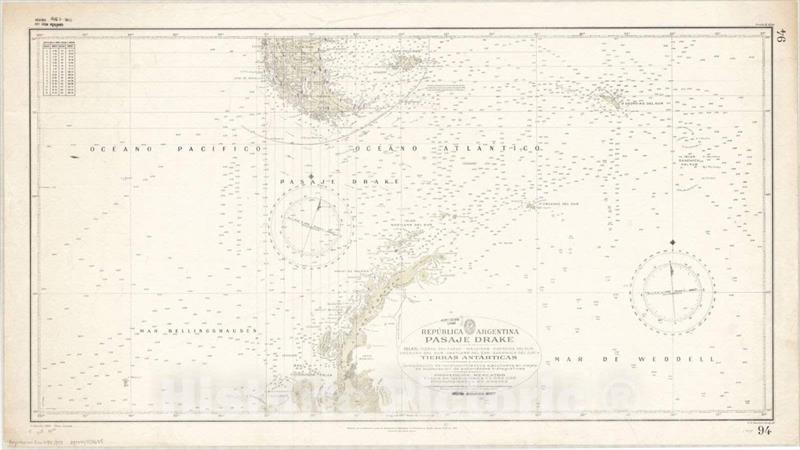
Global Solo Challenge: Parallel destinies - two great men and their journeys around the world
by Margherita Pelaschier 11 Apr 2023 08:29 PDT

Pasaje Drake © Instituto Nacional del Agua, INA
When I found out about the Global Solo Challenge (GSC) and its innovative format that favours the use of existing boats and no specific class, I went in search of the designs of the vessels used by the pioneers of single-handed sailing around the globe.
In my "sea library" I found Sir Francis Chichester's "Gipsy Moth Circles the World". In 1967, Chichester was the first to circumnavigate the globe solo via the three great capes, stopping only once; it took him nine months and one day. While looking for the third annex to the Italian edition in which he detailed the Gipsy Moth IV's sail plan, I stumbled upon a chapter written by his wife Sheila Chichester. So often, beside every great man there's a great woman.
Sheila Chichester's story made me think of the similarities between two great seafarers who each wrote a chapter of sailing history: Francis Drake and Francis Chichester.
To cope with the separation from her husband during his solo sailing adventure, Sheila, a strong believer in positive thinking and prayer, had little cards printed out with the prayer attributed to Drake and gave them to friends and family. The prayer is an invitation not only to the explorers of the unknown but to us all, it's an exhortation to challenge our limits and "push back the horizons of our hopes".
But who were Sir Francis Drake and Sir Francis Chichester and what did they have in common?
"Sic parvis, magna - Great things from small beginnings"
Firstly, they shared the same first name, Francis, they were both born in England, had a humble background, and travelled since a very young age.
Drake was born around 1540 into a family of farmers. The eldest of twelve children, at thirteen he boarded a cargo ship and just nine years later became the captain of a ship in the North Sea. His reputation of "Dragon" of the sea, as suggested by his surname, spread quickly after the attack on Cadiz and his incursions in South America and the Caribbean. Drake made the Latin motto "sic parvis, magna" his own, emphasising the fact that despite his humble origins he felt destined for greatness.
Chichester was born in 1901 into the humble family of a Church of England clergyman. Due to his parents' modest means, he spent his entire childhood at boarding school. When he finished his studies at the end of the First World War he emigrated to New Zealand in search of fortune. Having qualified as a pilot he set up a prosperous business. But the situation in world at the time didn't help him and the Great Depression forced him to return home. In England he took delivery of a plane with which he intended to fly to New Zealand and that was when his passion for breaking records and solo crossings began. He received various awards and inspired by navigation techniques he patented innovative solutions to establish flight position.
Continue reading the full article here...